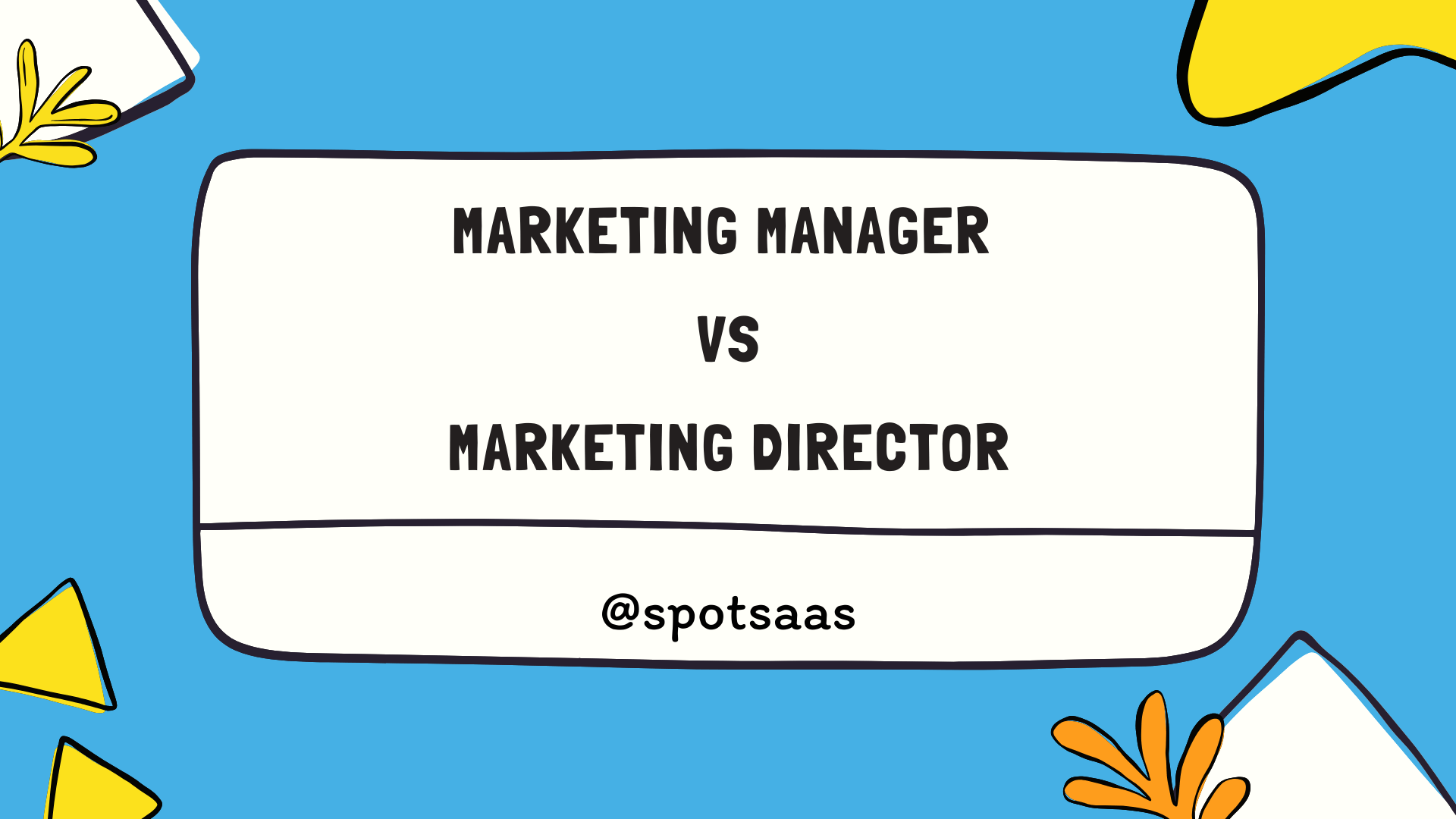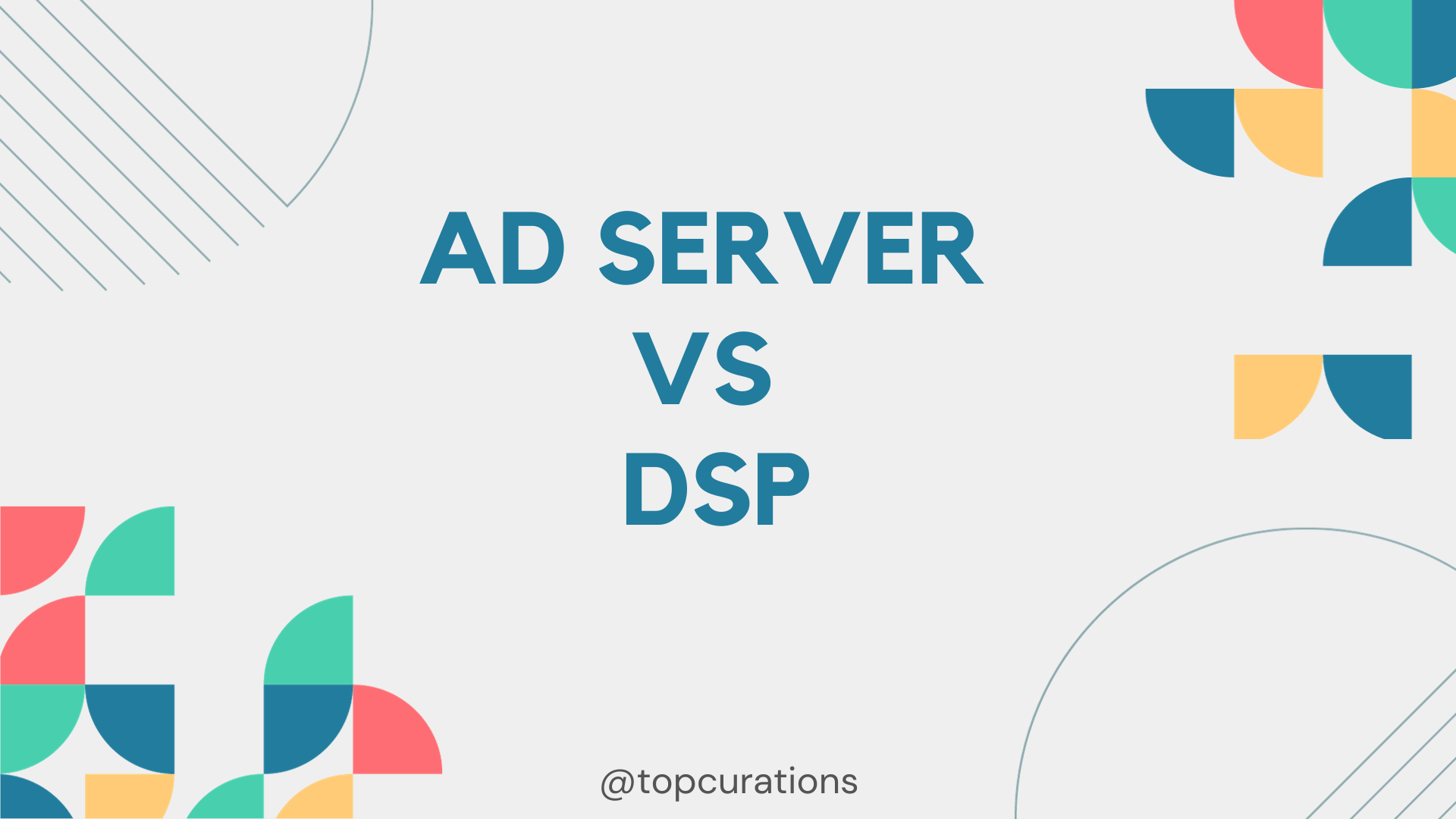Deciding between a marketing manager and marketing director position can be confusing, considering their titles often overlap in various companies. Despite general similarities, both roles have distinct functions and responsibilities that largely depend on the size of the organization.
This article will provide a comprehensive overview of each position’s job duties, skills required, salaries, and more to help clarify your understanding.
Key Takeaways
- Marketing managers are responsible for creating and implementing marketing strategies, analyzing market trends, managing budgets, and overseeing the execution of marketing plans.
- Both marketing managers and directors require a solid educational background, with a bachelor’s degree often being the minimum requirement. Professional certifications like Certified Professional Marketer (CPM) or Advanced Marketing Professional (AMP) offer added advantages in career advancement.
- Marketing directors have a higher level of responsibility and authority within an organization compared to marketing managers. They not only develop marketing strategies but also establish overall business goals related to sales and revenue.
- Skills required for both roles include strong leadership abilities, effective communication skills, analytical thinking, creativity, adaptability, and project management abilities.
- Salaries can vary based on factors such as experience and company size. On average, marketing managers earn around $134,290 per year while marketing directors tend to earn higher salaries with an average annual income of $149,200.
- Job outlook is promising with a projected growth rate of 8 percent from 2019 to 2029. Professionals specializing in digital marketing or data analytics will have excellent job prospects.
What is a Marketing Manager?
A marketing manager is responsible for creating and implementing marketing strategies to promote a company’s products or services. They collaborate with various teams to develop advertising campaigns, analyze market trends, manage budgets, and oversee the execution of marketing plans.

Education
Both marketing managers and directors require a solid educational background to successfully carry out their roles. A bachelor’s degree in fields such as marketing, advertising, or business administration is often the minimum requirement for these positions.
However, some companies prefer candidates with a master’s degree in business administration (MBA). Courses in economics, finance, public relations and even graphic design can also be beneficial to develop requisite skills.
Apart from formal education, various professional certifications like Certified Professional Marketer (CPM) or Advanced Marketing Professional (AMP) offer added advantages for career advancement in both roles.
Professional qualifications
To become a Marketing Manager or Director, it’s important to have the right professional qualifications. Most employers require candidates to have at least a bachelor’s degree in marketing, business administration, or a related field.
Some positions may also require a master’s degree for more senior roles. In addition to formal education, industry certifications such as the Professional Certified Marketer (PCM) designation can enhance your credentials and demonstrate your expertise in the field.
Having relevant work experience is also crucial for these positions. Many employers prefer candidates who have several years of experience in marketing or sales roles. This hands-on experience provides valuable insights into consumer behavior and market trends.
Additionally, having strong analytical skills and proficiency with marketing software tools like Google Analytics is highly desirable for these roles.
Job Duties
Marketing managers are responsible for developing and implementing marketing strategies to promote products or services. They analyze market trends, conduct research, and identify target audiences to create effective marketing campaigns.
Marketing managers also oversee the work of their team members, such as marketing specialists or coordinators, and collaborate with other departments to ensure cohesive branding and messaging across all channels.
They monitor the performance of marketing initiatives using analytics tools and adjust strategies as needed to achieve business goals. Additionally, they may be involved in budgeting, forecasting, and presenting reports on campaign results to senior management.
Skills
Marketing managers and marketing directors require a range of skills to excel in their roles. They should have strong leadership abilities, as they often oversee teams and collaborate with other departments.
Effective communication skills are essential for both positions, as they need to convey ideas clearly to clients, colleagues, and stakeholders. Analytical skills are also important, as managers and directors need to assess market trends, conduct research, and analyze data to make informed decisions.
Additionally, creativity is crucial for developing innovative marketing strategies that stand out from the competition. Adaptability is another valuable skill since the industry is constantly evolving with new technologies and consumer behavior changes.
Lastly, project management skills are necessary for planning campaigns and ensuring deadlines are met. Overall, a blend of leadership, communication, analytical thinking, creativity, adaptability, and project management abilities will set marketing managers.
Salaries
Marketing managers and marketing directors can earn competitive salaries based on their experience and level of responsibility. On average, marketing managers earn around $134,290 per year, according to the Bureau of Labor Statistics.
However, salaries can vary depending on factors such as location, industry, and company size. In contrast, marketing directors tend to earn higher salaries with an average annual income of $149,200.
Keep in mind that these figures are just averages and individual salaries can be higher or lower based on various factors.
Job Outlook
The job outlook for marketing managers and marketing directors is promising, with a projected growth of 8 percent from 2019 to 2029. This growth rate is faster than the average for all occupations.
As companies continue to rely on digital marketing strategies and expand their online presence, the demand for skilled professionals in these roles will likely increase. The competition for high-level positions can be fierce, so having a strong educational background, relevant experience, and staying up-to-date with the latest industry trends can give candidates an edge.
Marketing managers and directors who specialize in digital marketing are particularly sought after due to the growing importance of online advertising and social media campaigns. Additionally, those with expertise in data analytics and market research will also have excellent job prospects as companies strive to make data-driven decisions to gain a competitive advantage in the market.
What is a Marketing Director?
A Marketing Director is a senior-level executive responsible for overseeing the marketing strategy and operations of an organization.

Education
To become a Marketing Manager, you typically need at least a bachelor’s degree in marketing, business administration, or a related field. Some employers may also require a master’s degree for higher-level positions.
In addition to formal education, relevant work experience in marketing or sales is highly valued. Strong communication and analytical skills are essential for success in this role.
For aspiring Marketing Directors, a higher level of education is often required. Many companies prefer candidates with a master’s degree in marketing, business administration, or a related field.
Professional qualifications
To become a Marketing Manager or Marketing Director, you will typically need a bachelor’s degree in marketing, business administration, or a related field. Professional qualifications such as certifications from the American Marketing Association or the Chartered Institute of Marketing can also enhance your credentials and make you more competitive in the job market.
Additionally, gaining experience through internships or entry-level positions is valuable for developing practical skills and industry knowledge. Employers often look for candidates with strong analytical abilities, creativity, communication skills, and leadership qualities when hiring for these roles.
Job Duties
Marketing managers are responsible for developing and implementing marketing strategies to promote products or services. They collaborate with other departments to coordinate advertising campaigns, oversee market research studies, and analyze customer data.

Additionally, they monitor industry trends, evaluate competitor strategies, and make recommendations for improvements. Marketing managers also manage budgets and allocate resources accordingly to ensure the success of marketing initiatives.
On the other hand, marketing directors have a higher level of responsibility and authority within an organization. They not only develop marketing strategies but also establish overall business goals related to sales and revenue.
Marketing directors lead their teams in executing these strategies by overseeing advertising campaigns, managing product launches, and monitoring brand positioning. They also play a key role in building relationships with clients or partners while staying updated on emerging technologies or market trends that can enhance the company’s competitive edge.
Skills
Marketing managers and marketing directors require a specific set of skills to succeed in their roles. These professionals need excellent communication skills, both written and verbal, as they collaborate with internal teams and external stakeholders.
They also need strong analytical skills to gather and interpret data for market research purposes. In addition, creativity is key to developing innovative marketing campaigns that stand out from the competition.
Leadership abilities are crucial for effectively managing teams and overseeing projects from start to finish. Lastly, proficiency in digital marketing tools and platforms is necessary in today’s digital age.
Salaries
Marketing managers and directors can expect competitive salaries for their roles. According to the Bureau of Labor Statistics, the median annual wage for marketing managers was $141,490 as of May 2020, with the lowest 10 percent earning less than $71,430 and the highest 10 percent earning more than $208,000.
On the other hand, marketing directors tend to earn even higher salaries. The median annual wage for marketing directors was $149,200 as of May 2020, with the lowest 10 percent earning less than $65,290 and the highest 10 percent earning more than $208,000.
These salary ranges reflect not only the level of responsibility that comes with these positions but also factors such as years of experience and industry type. Overall, both marketing managers and directors have strong earning potential in this field.
Job Outlook
Marketing managers and marketing directors can have promising job outlooks in the field of marketing. As companies continue to invest in their marketing efforts to stay competitive and reach target audiences, there is a growing demand for professionals who can lead and manage these activities.
According to the Bureau of Labor Statistics, the employment of advertising, promotions, and marketing managers is projected to grow 6 percent from 2019 to 2029, which is faster than the average for all occupations.
This growth is driven by organizations seeking to expand their market share and increase their customer base through effective marketing strategies. Additionally, as technology continues to advance and new digital platforms emerge, professionals who are skilled in digital marketing techniques may have even more opportunities available to them in the future.
Thought you might want to read what empowers both Marketing Manager and Director –
The Best Marketing Analytics Software, find the best here.
Differences Between a Marketing Manager and Director
Marketing managers and directors may have similar responsibilities, but there are key differences between the two roles. From their level of authority to their strategic focus, understanding these distinctions is crucial for career growth in the marketing field.
Read on to learn more about how these positions differ and which one might be right for you.
At very small companies
Marketing managers and marketing directors play important roles in companies of all sizes, including very small businesses. At these smaller companies, the marketing manager may have a more hands-on role in executing marketing strategies and campaigns.
They are responsible for developing and implementing marketing plans, conducting market research, managing advertising efforts, and analyzing customer data. Additionally, they may be involved in social media management, content creation, and public relations activities.
The marketing director at a small company will focus on strategic planning and overseeing the overall marketing department. They will set goals and objectives for the team while also creating budgets and allocating resources effectively to meet those goals.
At larger companies
Marketing managers and directors at larger companies play crucial roles in overseeing and implementing strategic marketing initiatives. They are responsible for leading a team of marketing professionals, developing comprehensive marketing plans, managing budgets, analyzing market trends, and ensuring the brand’s message is effectively communicated to the target audience.
Additionally, they collaborate with other departments such as sales and product development to align marketing strategies with overall business goals. At larger companies, these positions require strong leadership skills, excellent communication abilities, and a deep understanding of market dynamics.
Marketing managers usually report to marketing directors while working closely together to drive the company’s growth and success through effective marketing strategies.
Managers and directors
Managers and directors in the field of marketing play a crucial role in guiding and overseeing the overall strategies and operations within an organization. They are responsible for setting objectives, managing budgets, leading teams, coordinating campaigns, and ensuring that all marketing efforts align with the company’s goals.
While marketing managers focus on implementing specific marketing plans and overseeing day-to-day activities, marketing directors take a broader approach by developing long-term strategies, analyzing market trends, identifying new opportunities, and making high-level decisions to drive business growth.
Both positions require strong leadership skills, excellent communication abilities, strategic thinking capabilities, and a deep understanding of consumer behavior. The salaries for managers and directors vary depending on factors such as experience level, industry sector, and location of employment.

Putting it in context
Managers and directors play different roles depending on the size of the company they work for. At very small companies, a marketing manager might be responsible for overseeing all marketing activities and making strategic decisions.
They might also be involved in executing marketing campaigns and managing the team. On the other hand, at larger companies, a marketing director is typically responsible for developing overall marketing strategy and providing guidance to managers.
They focus more on high-level decision-making rather than day-to-day tasks. In both roles, managers and directors need strong leadership skills to effectively manage teams and achieve company goals.
Considering these differences in responsibilities, it’s important to understand that a marketing manager is an important player in implementing strategies within a smaller organization while a marketing director takes on a more strategic role within larger organizations.
Conclusion
In conclusion, while both marketing managers and marketing directors play crucial roles in a company’s marketing strategies, there are distinct differences between the two positions.
Marketing managers focus more on the day-to-day implementation and execution of marketing plans, while marketing directors have a broader strategic role in developing long-term goals and overseeing the overall marketing strategy.
Frequently Asked Questions
What are the main differences between a marketing manager and a marketing director?
A marketing director oversees the entire marketing strategy while a marketing manager focuses on specific areas like social media, product advertising or public relations.
What roles does a Marketing Manager generally perform in an organization?
Marketing managers often work as brand managers, digital marketing managers, product marketing managers or market research managers, focusing on particular aspects of a company’s overall strategy.
Can someone with experience as an advertising manager or sales manager become a Marketing Director?
Yes! Advertising and sales management experiences can provide valuable skills for becoming a successful Marketing Director who coordinates all promotional efforts within the company.
Is there any difference in the duties of the Communications Director and Marketing Director?
While they both oversee messaging strategies; communications directors focus more on internal communication and PR, whereas marketing directors mainly deal with external promotions and customer engagement.
Do I need to be a Marketing Coordinator or Strategist before becoming either- A Manager Or Director?
Not necessarily! Both coordinators and strategists have helpful expertise but you could also progress from executive or consultant roles into management or directorial positions depending on your skill sets.
How does the role of a Digital Marketing Manager differ from that of a traditional Sales Manager?
Digital Marketers focus particularly on online platforms optimizing SEO while Sales Managers usually work directly with both individuals & teams targeting revenue growth primarily through interpersonal relationships.




